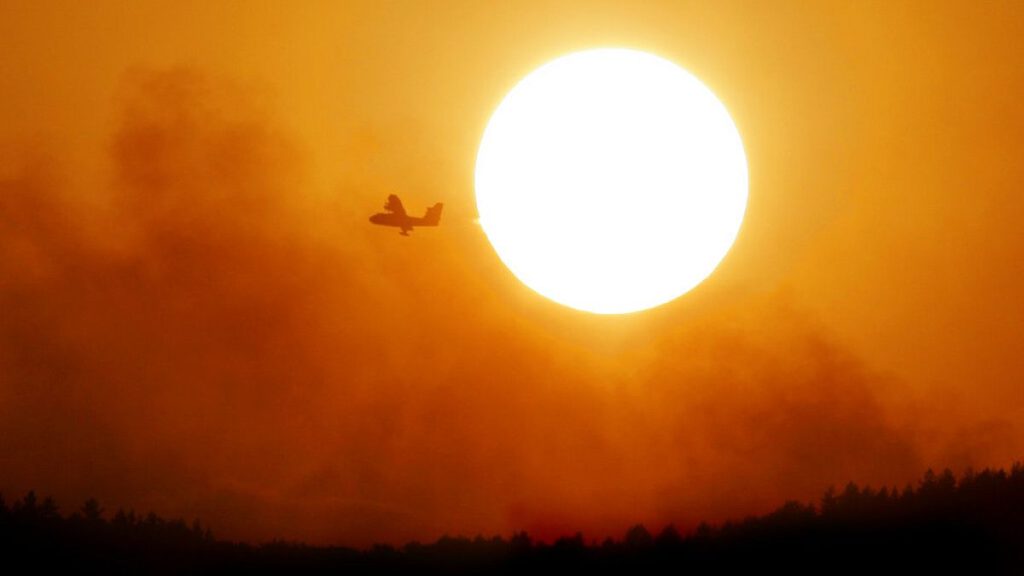Two European Union firefighting aircraft recently arrived on the Portuguese Island of Madeira to assist local authorities in combating a wildfire near the district of Ribeira Brava. The planes were deployed from Spain after Portugal requested help under the European Union Civil Protection Mechanism. This assistance is vital in challenging conditions as the fire has been raging for a week and threatens a UNESCO-listed forest. The Copernicus satellite system has been activated to monitor the blaze, with 4,937 hectares of land already burned by Wednesday afternoon. The European Commission is closely monitoring the situation and stands ready to dispatch additional resources if needed.
The fire on Madeira has prompted around 150 firefighters to battle the blaze on two main fronts on the island, which is typically crowded with tourists during this time of year. The fire originated in the Ribeira Brava district and has spread to neighboring districts like Camara de Lobos and Ponta do Sol in the southern part of the island. Local authorities have noted that the blaze is burning in areas that are difficult for firefighters to access. Despite the challenges posed by wind and high temperatures, there have been no reports of damage to homes or essential infrastructure. The arrival of the EU firefighting aircraft is seen as a crucial boost to firefighting efforts on the island.
The European Commission’s response to the wildfire on Madeira reflects a coordinated effort to provide support to affected areas. With a commitment to dispatch additional resources as necessary, the EU is maintaining a close watch on the situation to ensure that local authorities have the assistance they need to combat the ongoing blaze. The activation of the Copernicus satellite system has allowed for detailed monitoring of the fire’s progression, illustrating the importance of advanced technology in managing natural disasters. The firefighters on the ground are working tirelessly to contain the fire and protect the island’s natural beauty.
As the fire continues to burn on Madeira, the significance of international cooperation in responding to emergencies is evident. The deployment of EU firefighting aircraft from Spain underscores the solidarity among European countries in times of crisis. The challenging conditions faced by firefighters on the island are being met with collaborative efforts to contain the blaze and prevent further destruction. With the support of the European Union and local authorities, the firefighting operation is working to safeguard lives and property while minimizing the impact of the wildfire on the island’s ecosystems.
Despite the difficulties posed by the wildfire on Madeira, there is a sense of resilience and determination among those involved in the firefighting efforts. The steadfast commitment of the firefighters on the front lines, combined with the support from European partners, highlights the collective response to emergencies that transcends borders. The focus on protecting the environment and heritage of the island underscores the broader goals of conservation and sustainability. As the firefighting operation continues, the coordination between local authorities and international partners will be crucial in effectively managing the situation and bringing the blaze under control.
In conclusion, the arrival of EU firefighting aircraft on Madeira represents a significant step in the ongoing battle against the wildfire on the island. The collaborative response from European countries, along with the monitoring capabilities of the Copernicus satellite system, reflects a proactive approach to managing natural disasters. The efforts of firefighters on the ground, supported by international assistance, demonstrate a commitment to safeguarding lives, property, and the environment. As the situation evolves, the response to the wildfire on Madeira serves as a reminder of the importance of solidarity and cooperation in times of crisis. By working together, local authorities and international partners can effectively address the challenges posed by wildfires and protect communities from the impacts of these devastating events.


